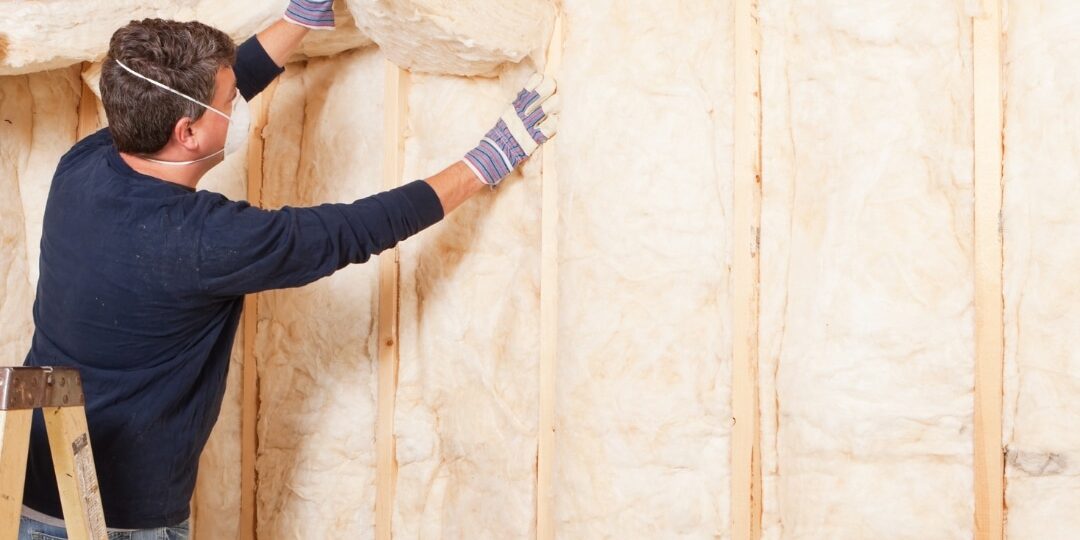Basement insulation is one of the most important upgrades you can make to improve energy efficiency, moisture control, and year-round comfort in your home. Whether you’re looking to finish your basement or simply want to cut heating and cooling costs, choosing the right insulation is critical—especially in spaces that are vulnerable to moisture problems, air leakage, and energy loss.
Let’s take a closer look at the best types of basement insulation, how they compare, and what to consider before starting your next home improvement project.
Why Basement Insulation Matters
Basements are often subject to cold temperatures, humidity, and poor air sealing—all of which make them a weak link in your home’s building envelope. Without proper insulation, your home could suffer from:
- Moisture damage and mold growth
- High energy costs from heating and air conditioning
- Cold floors and uncomfortable living areas above
- Increased air leaks through unsealed gaps
Because basements are usually below-grade, they require insulation that can handle contact with concrete, soil, and fluctuating indoor and outdoor temperatures. This makes moisture resistance and air barrier performance just as important as R-value.
Top Basement Insulation Options
1. Rigid Foam Board Insulation
Rigid foam (such as XPS or EPS) is a leading choice for insulating basement walls due to its durability and resistance to water intrusion.
Benefits:
- High R-value per inch, reducing heat loss
- Built-in moisture resistance
- Easy to cut and install on foundation walls
- Excellent compatibility with air sealing techniques using caulk or sealant
Ideal For: DIY projects or professional installations on interior basement walls and rim joists.
2. Closed-Cell Spray Foam Insulation
Spray foam insulation offers high thermal resistance while also forming a powerful air seal that blocks moisture, drafts, and allergens.
Benefits:
- Highest R-value of any basement insulation
- Creates a continuous air barrier
- Adheres directly to framing, sheathing, or concrete walls
- Resists mold, pests, and moisture infiltration
Ideal For: Homeowners looking for professional-grade performance and complete moisture protection in humid climates or finished basements.
3. Mineral Wool (Rock Wool)
Mineral wool is made from stone and is naturally fire-resistant, making it a durable and safe choice for basement joist bays and walls.
Benefits:
- Resistant to fire, mold, and rodents
- Maintains insulation value when wet (unlike fiberglass)
- Great for soundproofing and thermal insulation
Ideal For: Areas where moisture control and fire safety are equally important.
Other Options and Considerations
- Fiberglass Batts: Affordable but not ideal for below-grade areas unless used in combination with vapor barriers and proper drainage.
- Cellulose: Environmentally friendly but prone to moisture absorption.
- Crawlspaces and rim joists also benefit from targeted air sealing and insulation techniques.
No matter which material you choose, always address air leakage before insulating. Products like weatherstripping, gaskets, and caulk can be used around ductwork, sills, and flue penetrations to seal leaks and maximize performance.
Common Insulation Mistakes to Avoid
- Ignoring air sealing before installing insulation
- Skipping the vapor barrier where needed
- Using fiberglass directly against concrete
- Not planning for ventilation or dehumidification
- Overlooking blower door testing or energy audits
These oversights can undermine even the best green building efforts and reduce your home’s energy efficiency.
How to Choose the Right Option
When deciding on insulation, consider:
- Moisture conditions in your basement
- Whether your basement is finished or unfinished
- Budget for DIY vs. professional installation
- Need for soundproofing, fire resistance, or air quality
A home energy audit or blower door test can help identify problem areas and determine the best approach to improving insulation and comfort in your home.
Work With Colorado’s Basement Insulation Experts
At Insulation Pros of Colorado, we specialize in basement and crawlspace insulation solutions tailored to Colorado’s diverse climate. Whether you’re looking for a full basement encapsulation, targeted air sealing, or a complete spray foam installation, our team delivers precision and peace of mind.
We provide:
- Expert recommendations based on building science
- Professional-grade air sealing techniques
- Moisture-resistant products like rigid foam and closed-cell spray foam
- Long-term solutions backed by a 10-year labor warranty
Call us today at (970) 680-4875 or request a free energy assessment to see how you can boost comfort and cut costs with expert-installed insulation.
FAQ: Basement Insulation
1. What’s the best insulation for basement walls?
Rigid foam insulation is the top choice for concrete walls due to its moisture resistance and high R-value.
2. Can I insulate my basement myself?
Some materials like rigid foam boards are DIY-friendly, but for best results and proper air sealing, it’s often better to hire a professional.
3. Is a vapor barrier necessary in the basement?
Yes, especially in humid areas. A vapor barrier prevents moisture and condensation from entering wall cavities.
4. Will insulating my basement reduce my energy bills?
Absolutely. Proper insulation reduces air leakage, supports green home performance, and can cut heating and cooling costs significantly.
5. What’s the difference between spray foam and rigid foam?
Both are moisture-resistant, but spray foam offers superior air sealing and is best for irregular surfaces. Rigid foam is more budget-friendly and easier to install.
6. Do I need an energy audit before insulating?
A home energy assessment using a blower door can reveal where air escapes and help you prioritize insulation upgrades.








